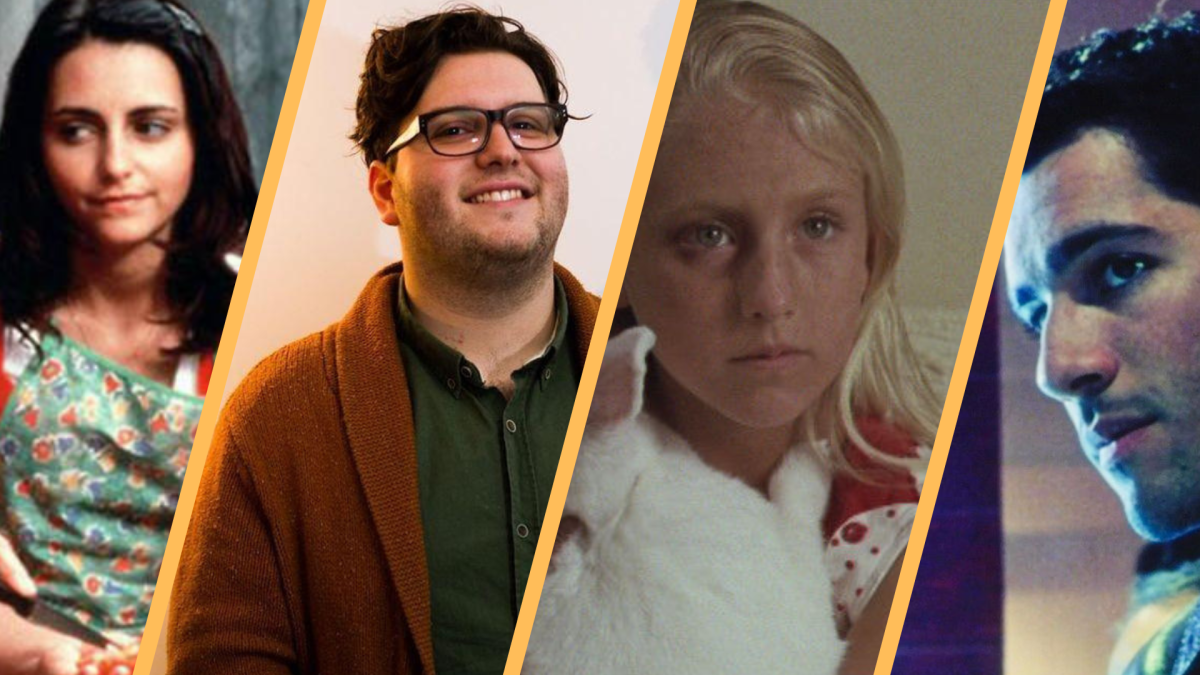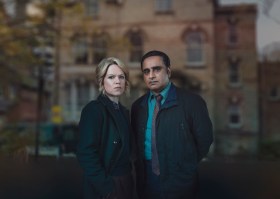Alexei Toliopoulos is a filmmaker, comedian, critic and one of the biggest Australian movie buffs alive today.
It’s surely no surprise to anyone that has witnessed his encyclopaedic film knowledge on shows like ABC’s The Mix, and podcasts like Total Reboot and Finding Drago, to learn that Toliopoulos is now host an Australian-film obsessed podcast for Umbrella Entertainment.
Often stating that his ‘mission on Earth’ is to celebrate and champion our local cinema scene, Toliopoulos has once again turned his passion into a project with Sunburnt Screens, the companion podcast to Umbrella’s new streaming service, Brollie.
Read: Brollie: a new free streaming service by Umbrella Entertainment
In Sunburnt Screens: The Australian Cinema Odyssey, Toliopoulos delves into the rich and complicated history of Australian filmmaking, from Ozploitation to New Wave and beyond, accompanied by conversations with some of Australia’s most celebrated filmmakers such as Rolf de Heer, Gillian Armstrong, The Spierig Brothers and Natalie Erika James.
Ahead of the podcast’s launch, ScreenHub chats to Alexei Toliopoulos about Brollie, Sunburnt Screens and unearthing an Australian animated adaptation of Beowulf.
Alexei, it’s so nice to meet you. I’m going ask you the hardest question upfront: what’s your favourite Aussie film?
Alexei Toliopoulos: Wow, that’s tough – there are so many! The one that I always come back to is Looking for Alibrandi. When I think about Aussie films, the ones that resonate the strongest with me are those that feel like they are a reflection of my own life. That’s something you can’t get elsewhere. Obviously, there are films from around the world that can make you feel seen, but the Australian ones cut closer to home. I grew up in Sydney, I have Mediterranean heritage, and my mum and grandma lived in the same house, so when I see Looking for Alibrandi, it feels like looking at my family photo album. I have such a strong relationship to that film.
And the other one that I have a very similar relationship to is Ana Kokkinos’ Head On, which is about the clash between queerness, Greek-ness and masculinity in this really beautifully and viscerally filmed Melbourne nightlife. I find it really powerful, and really evocative. I think those two films capture the diaspora of the Mediterranean community in Australia. And those films just mean a terrible amount to me; I love them so much.
Why do you think Australian films are sometimes seen as “embarrassing”, or are otherwise overlooked by the general public?
I think that’s a great question. It’s kind of my life’s mission to change that perspective, and one of the reasons I’ve wanted to make a podcast like this for so long. I think part of it is our cultural cringe and that, in order to accept our media as “good”, it needs to find success overseas first. We have that aspect of self-doubt. Once we have world validation, though, we get audiences at home going, “Oh yeah, maybe this is good.” So, I think it’s more to do with our mass psychology, rather than the art itself.
We’ve gone through different movements and phases of Australian cinema. Right now we’re in a really fervent new wave of horror movies from The Babadook to Talk to Me. There are so many great genre pictures happening here. But I don’t know how much the Australian audiences are seeing that. Whereas overseas audiences can recognise that there’s something happening in Australia right now. Often it takes some hindsight to realise how good we’ve got it.
Read: Talk to Me review: an Australian horror to possess you
I think you’re spot on. Why must we seek validation from the US before we deem an Aussie film “worthwhile”?
Exactly. Sometimes it can be hard for audiences to engage with film, especially because television is in this golden age and it’s super accessible from your own home. When you go to the movies, there’s that slightly higher barrier of entry of needing to actually go out and seek a film to see. If you’re looking for something more obscure, you really have to hunt for what you want. Plus, if you’re not actively looking for other films, all you’re hearing about are the big blockbusters and the mainstream movies with giant advertising budgets.
People like you and me, that love film, we’re like hunters. We’re on a constant search for new films and seeing what our taste is. I think there’s something quite intimidating in seeing that gateway into wider film discovery.
I think something that Brollie is doing really well is illuminating those access points into the discovery of more Australian films.
Do you think Brollie will help change the unfair perspective on Australian film?
I hope so. It definitely has a chance to invigorate people’s excitement around Australian film, and connect it to a broader history with these movies as cultural touchstones.
Tell me more about Brollie’s accessibility – I know that it’s a free streaming service, but what else is it doing?
The free aspect is such a good thing. Another thing that makes Brollie quite accessible is the specificity of it. There are so many streaming services out there, and it’s going on the same journey as podcasting, where the more niche the service is the better. Brollie’s thing is cult films, Australian films and independent cinema. That gives people a reason to go there, because they’re going there for that specific purpose.
There are also spotlights on Brollie that celebrate First Nations films, and genre specific playlists, so you can watch films that have been hand-picked as examples of their respective categories. There’s also a bunch of films that have been really hard to access for a long time. A specific example is Lake Mungo, which is a really fantastic faux-documentary horror film from the mid 2000s. That has since become a cult classic overseas, but it never quite had the same response here because it’s been really hard to find.
After all these years of inaccessibility, Lake Mungo is now one of the launch titles on Brollie, which is really exciting. Celia, a folklore film from the 80s, is another one I’m excited to see on the platform, as is Grendel Grendel Grendel, which is an Australian animated film that’s like a retelling of Beowulf.
My entire reason to exist is to find films like these and help others celebrate them. I’m excited to not be the only one that knows about these films anymore.
In regards to your podcast Sunburnt Screens, is each episode going to tie-in to a different film that’s available on Brollie? Or is it less prescriptive than that?
It’s less prescriptive than that. It’s been a dream of mine to make a podcast that celebrates Australian cinema and gets used as that access point into that world. Sunburnt Screens is eight episodes in total, and four of those come out this year. Each episode is about a topic in film, and it’s structured like an audio documentary.
Each week there’ll be a certain curated selection of films on Brollie that relate to what we talked about on Sunburnt Screens. So in the third episode, we talk about Ozploitation, and I interview Brian Trenchard-Smith about some of my favourite films – BMX Bandits, Dead End Drive-In and The Man from Hong Kong – which I think is one of the best action movies ever made. You can then go and watch those films on Brollie as your entry point into Ozploitation, and then go off and explore and find stuff for yourself.
I didn’t want it to come with homework; I wanted people to go away from the podcast feeling inspired to find these movies themselves.
Obviously you’re a film expert, but was there anything you learned from your Sunburnt Screens guests that truly surprised you?
Gosh, honestly, it was overwhelming because there’s so much stuff I didn’t know. The one guest that stands out is Rolf de Heer, who’s someone I’ve been a tremendous fan of my entire life. In his film Bad Boy Bubby, there is an actor called Grant Piro who plays multiple roles. I always liked Piro because he used to host this kids’ TV show called Couch Potato that I watched when I was seven or eight years old. I was dying to know why Piro is the only actor playing multiple roles in Bad Boy Bubby, and in this podcast I finally got to ask Rolf de Heer about it. I feel like I can close that loop in my life now!
Both Brollie, the streaming service, and Sunburnt Screens, the podcast, launch on 23 November.





